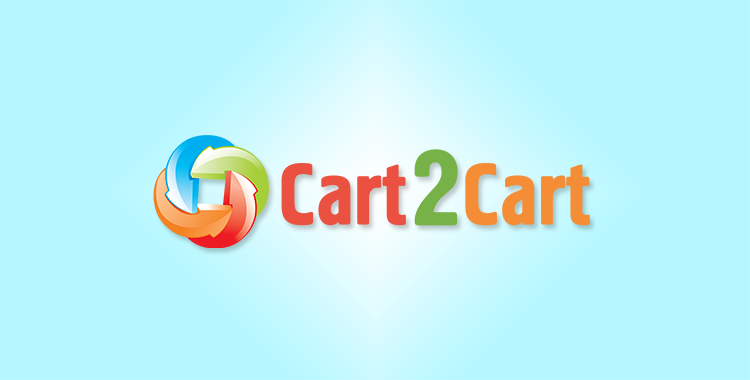Even experienced programmers will admit that the implementation of e-Commerce platform may become a very challenging issue. Whether you use open source shopping cart or paid solution, you will meet hosting and installation issues. Since a lot of online merchants have very few (if any) knowledge in programming and web design it created a demand of hosted eCommerce solutions. This review introduces you the main “players” at the market: Volusion (powering thousands of stores) and Shopify (supporting millions of merchants globally).
Both companies take care of server issues and you just need to follow simple step-by-step manual to install your shopping cart. So, what is the difference? We will try to list all unique peculiarities and advantages of each platform to help you understand how they can improve your business.
Usability
Product management in both cases is extremely feature-rich and user-friendly. You can simply manage your store through the Internet browser. For example, each shopping cart can provide you with opportunity to add products, categories, images, control your stock level, track the most popular items, get order history etc. However, both platforms have their own unique peculiarities. Volusion cart features one-page checkout, a feature many clients appreciate. Your clients will also appreciate opportunity to see a pop-up with all ordered products. Admin area will allow you to access any option that is connected to the products.
Some of Shopify’s recognizable opportunities include bulk import of your goods and possibility to manage store via mobile phones such as iPhone. You will also be able to manage a few different shops from one back end. So, you can sell sport equipment in one store and IT hardware in another but have a simple inventory management system in one place for both shops.
Both carts support vast number of payment (PayPal, Authorize.Net, Chronopay) and shipping (FedEx, UPS) gateways.
Design
Only sky is a limit. This statement is true for both carts. Volusion offers a huge number of free and paid templates and opportunity to create your own with full access to HTML and CSS. Shopify themes provide you with exactly the same opportunities. The only difference is that you can use Volusion services and create a unique design for your store.
Marketing and SEO
Volusion and Shopify can boast of search engine friendly URLs, coupons and discount systems, advanced newsletter systems, etc. However, some differences appear in terms of social media marketing. For instance, Volusion offers the opportunity to sell on Facebook and eBay. You are also able to add your latest news on Twitter and YouTube. Shopify provides extensive social media integration and may offer various promotional credits for advertising platforms. You will get advanced e-Commerce analytics and Google analytics integration which report about your clients, traffic rates and effective marketing campaigns.
Support
Shopify offers robust 24/7 multi-channel support, including comprehensive online documentation and an active community forum. Volusion also provides extensive customer support via phone, email, and chat, alongside comprehensive documentation and community resources.
Pricing
Both platforms offer competitive pricing, though their structures cater to different business needs. Shopify's transaction fees vary by plan, though these are typically waived when using Shopify Payments. Volusion has historically not charged transaction fees, with its pricing structure reflecting different service levels. The specific features and pricing model can sometimes lead e-merchants to consider various migration paths, including from Shopify to Volusion, depending on their evolving business requirements.
Extensibility
While Volusion provides a more integrated solution, Shopify stands out for its extensive App Store. An official App Store sells different modules, templates and extensions, which can be bought to improve every possible feature of your shopping cart. For quite affordable money you are able to add unique and useful options. Volusion doesn’t offer such opportunity so will have to search, buy and integrate them from third party developers by your own. This can be a main reason of Volusion to Shopify migration.
After this small Shopify and Volusion review you’ve got an idea what benefits can bring these two hosted e-Commerce solutions to your online business. Make a choice between these two and bring your web store to the new era of success.
Monthly Update – January 2026
As we step into January 2026, the e-commerce landscape is increasingly shaped by advancements in AI-driven personalization and the growing demand for seamless omnichannel experiences. Merchants on platforms like Volusion and Shopify should prioritize integrating AI tools for intelligent product recommendations, predictive analytics, and enhanced customer service chatbots to stay competitive. The focus has also shifted towards sustainable and ethical sourcing, with consumers actively seeking brands that demonstrate transparency and social responsibility. Furthermore, mobile commerce continues its dominance, making responsive design and quick loading times non-negotiable for a positive user experience. Emerging technologies such as augmented reality (AR) for product visualization are also gaining traction, offering immersive shopping experiences. Ensuring your platform can support these innovations is crucial. If contemplating a platform switch, consider a full data migration audit and leverage expert services to manage the transition smoothly, preserving SEO and customer data integrity. Staying agile and adopting these trends will be key to e-commerce success this year.
For more details, explore our FAQ section or schedule a call with a migration expert.



